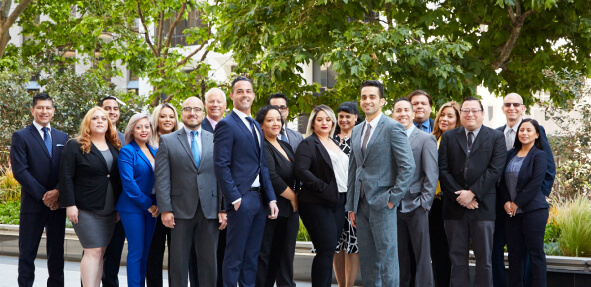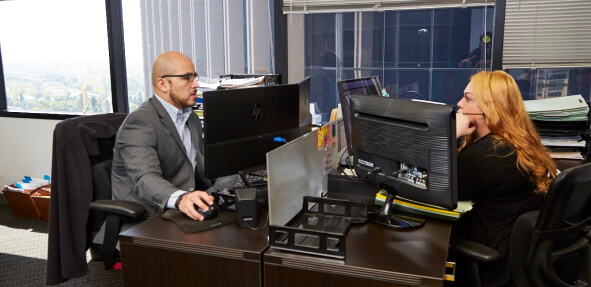If you’ve been injured in a rideshare accident, you’re likely wondering if you can hold the company responsible. Rideshare companies like Uber and Lyft provide liability coverage, so it is possible to make an insurance claim. If the insurer refuses to come to a fair deal, you can sue for injuries for your rideshare accident.
If you are frustrated with dealing with a rideshare company’s insurers after an accident, you can work with a Los Angeles rideshare accident lawyer to help you with your lawsuit.
Understanding Rideshare Accident Liability
Rideshare accident liability follows a framework different from traditional auto accidents. As a passenger in an Uber or Lyft, you benefit from multiple layers of potential insurance coverage, depending on the circumstances of the accident and who was at fault.
Rideshare companies maintain substantial insurance policies that provide coverage in varying amounts based on the driver’s status at the time of the accident:
- When the driver is offline (app off): The driver’s personal auto insurance applies
- When the driver is available but waiting for a ride request: Limited liability coverage from the rideshare company (typically $50,000 per person/$100,000 per accident)
- When the driver has accepted a ride or has passengers: The rideshare company’s full $1 million liability policy applies
This tiered structure creates a safety net for passengers, who are generally covered by the $1 million policy during their ride. However, complications can arise when determining which insurance applies, especially in accidents involving multiple vehicles or disputed liability.
For a free legal consultation, call (877) 735-7035
Your Rights as a Rideshare Passenger
As a passenger in a rideshare vehicle, you have specific rights that protect you in the event of an accident:
- Coverage under the rideshare company’s insurance regardless of which driver caused the accident
- Access to uninsured/underinsured motorist coverage if the at-fault driver lacks adequate insurance
- Potential compensation for medical expenses, lost wages, pain and suffering, and other damages
- The right to pursue a claim against any negligent party involved in the accident
Unlike drivers who may have their claims denied based on their own contributory negligence, passengers are generally considered blameless in rideshare accidents. This means you typically have stronger claim prospects as a passenger than as a driver in another vehicle.
Passengers can sue for injuries after a rideshare accident if, despite your stronger claim, the insurers decide to give you less than you deserve or deny your claim completely.
Steps to Take After a Rideshare Accident
Taking appropriate action immediately after a rideshare accident can significantly strengthen your claim:
Prioritize Safety and Medical Attention
- Move to a safe location if possible
- Call 911 to report the accident and request medical assistance
- Accept medical evaluation even if injuries seem minor, as some injuries may not be immediately apparent
Document the Accident Scene
- Take photos of vehicle damage, the accident location, and any visible injuries
- Record the names and contact information of all drivers involved
- Collect contact information from any witnesses
- Note road and weather conditions that may have contributed to the accident
Preserve Rideshare Trip Information
- Screenshot your trip details from the app, including the driver’s information and route
- Save the receipt and trip confirmation
- Report the accident through the rideshare app’s safety reporting feature
Seek Prompt Medical Treatment
- Visit an emergency room or urgent care facility immediately if you have serious injuries
- See your primary care physician within 24-72 hours even for seemingly minor injuries
- Follow all treatment recommendations and attend follow-up appointments
- Keep detailed records of all medical visits, treatments, and expenses
Thorough documentation creates a clear connection between the accident and your injuries, which is crucial for establishing damages in your claim.
Click to contact our personal injury lawyers today
Filing an Insurance Claim vs. Filing a Lawsuit
After a rideshare accident, you generally have two main paths to seeking compensation:
The Insurance Claim Process
Most rideshare accident cases begin with an insurance claim rather than an immediate lawsuit. This process typically involves:
- Notifying the rideshare company of the accident through their app
- Providing documentation of your injuries and damages to the appropriate insurance carrier
- Negotiating with the insurance adjuster to reach a fair settlement
Insurance claims can often be resolved without suing the rideshare company, but the process may take several months, especially for more serious injuries requiring ongoing treatment.
When a Lawsuit Becomes Necessary
If the insurance process doesn’t result in a fair offer, filing a lawsuit may be appropriate. Reasons to consider litigation include:
- The insurance company denies liability despite clear evidence
- The settlement offer fails to adequately cover your damages
- Multiple parties share liability, complicating the insurance process
- The statute of limitations (typically two years in California) is approaching
A lawsuit formally begins the litigation process, but settlement negotiations can continue even after filing. Many cases settle before reaching trial, though you should be prepared for the possibility of court proceedings.
Complete a Free Case Evaluation form now
Navigating Insurance Coverage Challenges
Rideshare accident claims often involve coverage disputes between multiple insurance companies:
- The rideshare company’s insurer may attempt to shift responsibility to the driver’s personal insurance
- The driver’s personal insurance may deny the claim if they lack a rideshare endorsement
- Other involved drivers’ insurers may dispute their liability
These challenges can delay the claims process and potentially reduce your compensation if not properly addressed. Having legal representation can help prevent insurance companies from minimizing your claim and opens up the possibility of suing for injuries after a rideshare accident
Types of Compensation Available
Depending on the severity of your injuries and the circumstances of the accident, you may be entitled to several forms of compensation:
- Medical expenses: Coverage for all accident-related medical care, including future treatment needs
- Lost income: Compensation for work missed due to injuries and reduced earning capacity
- Pain and suffering: Damages for physical pain and emotional distress
- Property damage: Reimbursement for personal belongings damaged in the accident
- Loss of enjoyment: Compensation for activities you can no longer participate in due to injuries
The value of your claim will depend on factors including the severity of your injuries, their impact on your daily life, and the clarity of liability in the accident.
Contact J&Y Law for Assistance with a Rideshare Accident Claim
As a passenger injured in a rideshare accident, you can sue for injuries if the insurers do not come up with a fair amount to cover your needs. Rideshare companies maintain substantial insurance coverage specifically designed to protect passengers, though navigating the claims process often requires persistence and documentation.
By understanding the tiered insurance structure, taking appropriate steps after an accident, and preserving evidence of your injuries and damages, you can position yourself for a successful claim. You can also improve your chances by calling J&Y Law for a free consultation about your case.
Call or text (877) 735-7035 or complete a Free Case Evaluation form
















